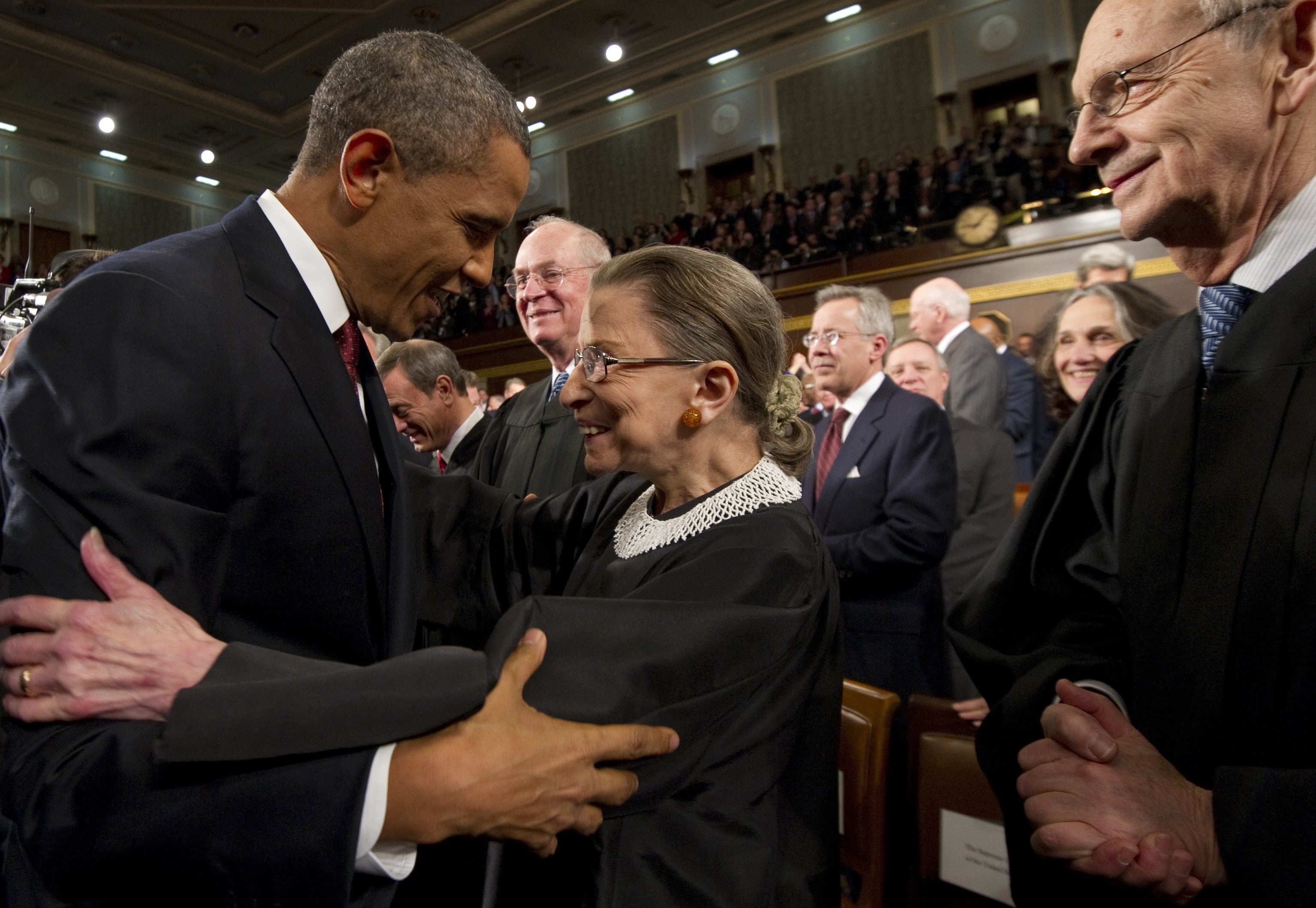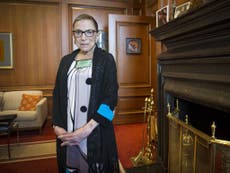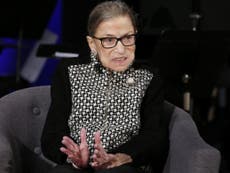Ruth Bader Ginsburg’s legacy is one of hope for social justice
Editorial: The death of the feminist US Supreme Court justice has triggered a political battle, but she leaves lasting achievements

When asked at what point there would be enough women on the nine-member US Supreme Court, Ruth Bader Ginsburg replied: “When there are nine.” An all-female Supreme Court? Why not, she asked. “Nine men was a satisfactory number until 1981.”
The death of Justice Ginsburg is of immediate political significance because it gives Donald Trump the chance to rush through the nomination of a conservative judge, which would entrench the conservative majority on the Supreme Court, turning a five-to-four majority into a six-to-three one.
Already, Mitch McConnell, the Republican Senate majority leader, has reversed his position from when Antonin Scalia died just before the 2016 election. Then, he said: “The American people should have a voice in the selection of their next Supreme Court justice. Therefore, this vacancy should not be filled until we have a new president.” Now, he says precisely the opposite, stripping away another layer from the fiction that US legal appointments are anything other than intensely party-political.
So be it. It is hard to believe that the Democrats would behave differently if they held the majority of seats in the Senate, although we can hope that they might avoid such outright hypocrisy.
After all, it is one of Justice Ginsburg’s legacies that the US Constitution is a living instrument, to be interpreted politically in the light of today’s values. Her lasting legal achievements – unlikely to be overturned even by a long-lasting majority-conservative Court – have involved interpreting the equal protection clause of the Constitution as outlawing sex discrimination. In the long view, this is a remarkable achievement for a document that was, at the time it was ratified, regarded as compatible with the institution of slavery.
Values change, and sometimes the cause of equality calls on exceptional individuals to show leadership, whether in politics, law or social activism. Justice Ginsburg was one of those, but even as we mourn her death we can be sure that she was part of a broader movement that will last.
So, even if President Trump represents a step – or if he is re-elected in November, two steps – back, and even if there is a conservative majority on the Supreme Court for a long time to come, Justice Ginsburg’s life is a reminder of the possibility and indeed probability of progress.
The Independent, as a young and optimistic media organisation, is inclined to the long view. “The arc of the moral universe is long, but it bends toward justice,” Ruth Bader Ginsburg once said, quoting Martin Luther King. But it bends that way, she added, only “if there is a steadfast commitment to see the task through to completion”.
We believe that this commitment endures; that her tasks will be completed; and that, one day, there might just be nine female justices on the US Supreme Court.




Join our commenting forum
Join thought-provoking conversations, follow other Independent readers and see their replies
Comments